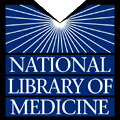


Page 58

|

|

Page 58 |
The many significant contributions of Public Health Service scientists to the development of the biomedical sciences and to the improvement of the public health cannot be summarized easily.
The major research endeavors during the early years were the diagnosis and study of infectious diseases, standardization and regulation of biologic products, the development of vaccines, the study of anaphylaxis or hypersensitivity to drugs, chemical tests for blood, the chemistry of vitamins, stream pollution, occupational health, and industrial hygiene. The aim was to apply science to the basic problems of health. The objectives were usually very practical in nature.
Joseph Kinyoun and his colleagues in New York City, for example, were the first in the United States in 1887 to make a bacteriological diagnosis of cholera. Studies in the South during the first half of the 20th century of the hookworm disease by Charles Stiles and of pellagra by Joseph Goldherger clearly demonstrated the relationship between poor living conditions, meager diet, and disease, and they helped stimulate full-time county health work. Epidemiological studies of typhoid fever in Washington, D.C., and elsewhere during 1906-10 by Leslie Lumsden contributed to the development of the rural sanitation movement.
After World War II the focus of research shifted to the study of chronic diseases, such as those of the heart and kidneys, cancer, arthritis, the neurological disorders, diseases of the eye and the teeth, health problems associated with aging, child health, and environmental health. Great emphasis has been placed on the study of human biology: immunology, genetics, cellular and molecular biology. The National Institutes of Health have played an important role in the development of recombinant DNA technology, which has given birth to genetic engineering and the new biotechnology industry.
NIH scientists have won Nobel Prizes for deciphering the genetic code, for work on the three-dimensional structure of proteins, for discovering how brain cells communicate with one another, and for work on slow viruses. They are at the forefront of research on AIDS.
Page:
5 10 15
20 25 30
35 40 45
50 55 60
65 70 75
80 85 90
95 100
105 110
115 120
125 130
135 140
145 150
155 160
165 170
U.S. National Library of Medicine, 8600 Rockville Pike, Bethesda, MD 20894 National Institutes of Health Department of Health & Human Services Copyright, Privacy, Accessibility Last updated: 27 April 1998 |